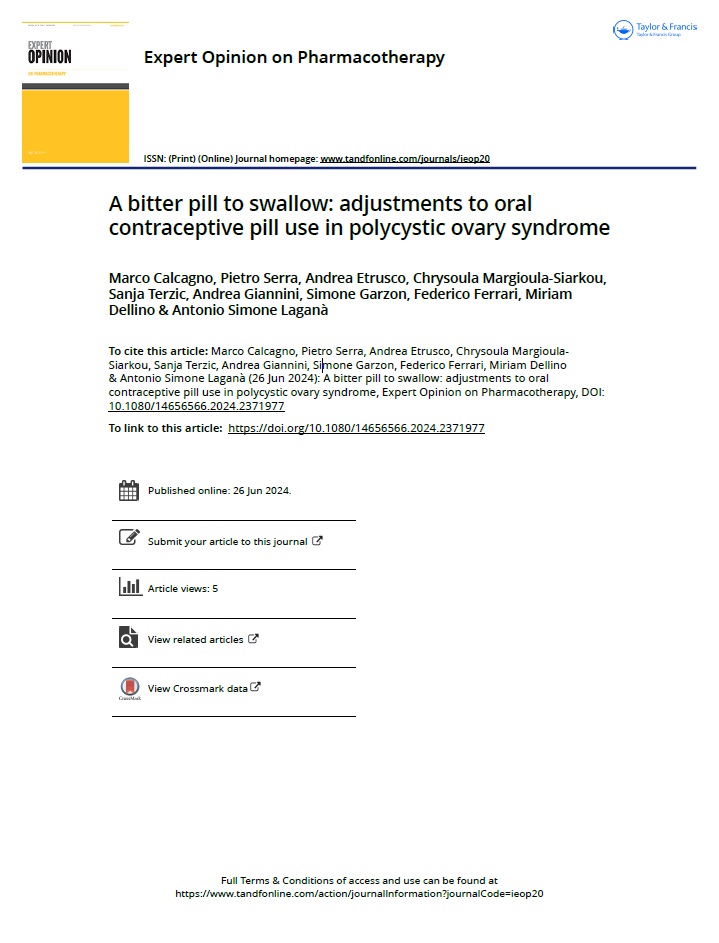Authors:
Marco Calcagno, Pietro Serra, Andrea Etrusco, Chrysoula Margioula-Siarkou, Sanja Terzic, Andrea Giannini, Simone Garzon, Federico Ferrari, Miriam Dellino & Antonio Simone Laganà
Introduction
This Special Report aims to highlight the importance of tailored therapies in women with Polycystic Ovary Syndrome (PCOS), avoiding prescribing generalized or unsuitable therapies based on oral contraceptive pills (OCPs).
Areas covered
This article discusses the benefits and risks of OCP-based therapy, highlighting the possible undesirable effects, especially in those patients exhibiting risk factors as women with PCOS, and the importance of carefully evaluated tailored therapeutic approaches. Literature searches were performed with the use of PubMed, Google Scholar, and Web of Science between January and February 2024.
Expert opinion
Considering the recent re-analysis of PCOS Rotterdam Criteria by the Expert Group on Inositol in Basic and Clinical Research, and on PCOS (EGOI-PCOS), the traditional Rotterdam phenotypes can be reclassified to achieve more efficacious therapy choices. Using personalized therapies that consider the specific clinical characteristics of the patient allows to improve the management of the syndrome, thus avoiding the generalized use of OCPs, which risk treating only symptoms of PCOS rather than the underlying cause. In cases when contraceptive purpose is desired, patients may benefit from combined therapy with diet or insulin-sensitizer agents, as inositol, to rebalance the metabolic profile, thus reducing the risk of developing future complications.

